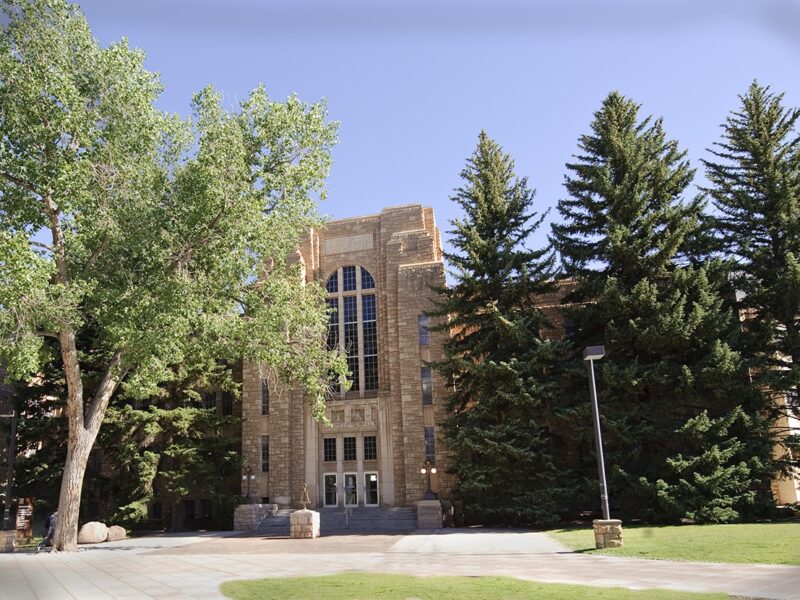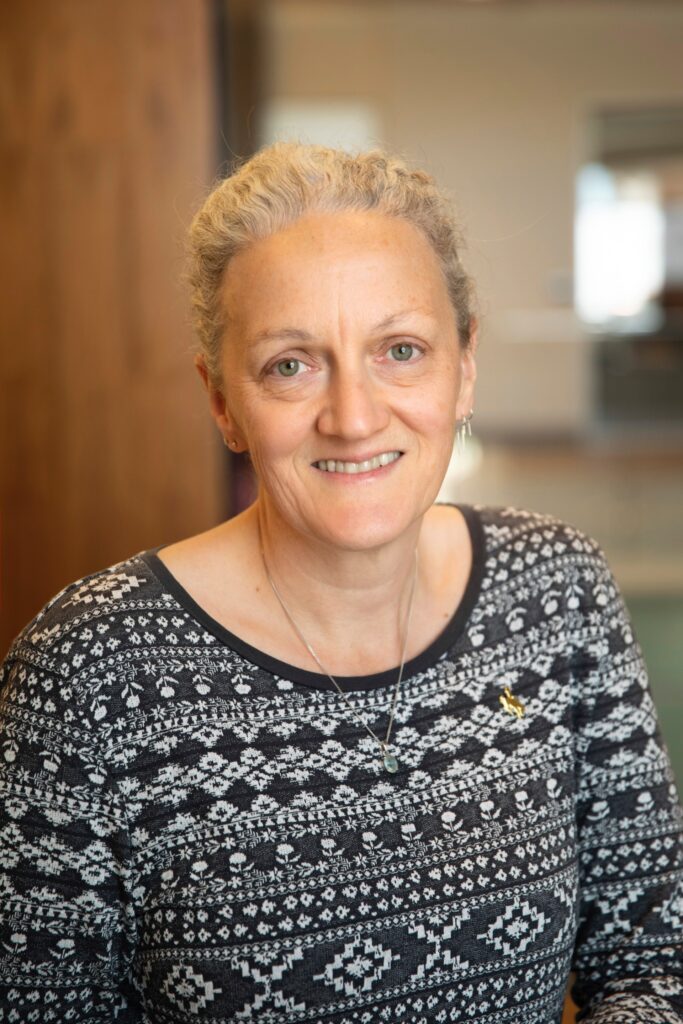University of Wyoming’s School of Computing Onboards Six Professors and Develops AI Curriculum
New faculty to teach ‘wave of the future’
- Published In: Other News & Features
- Last Updated: Jul 31, 2023

The University of Wyoming's College of Engineering and Physical Sciences, pictured above, houses the School of Computing. (Courtesy photo from the University of Wyoming's College of Engineering and Physical Sciences)
By Shen Wu Tan
Special to the Wyoming Truth
The University of Wyoming’s computing school has hired tenure-track faculty members in applied artificial intelligence (AI), machine learning and big data, inching closer to its goal of providing an interdisciplinary education in digital skills while expanding academic programs.
The School of Computing is onboarding six new faculty members with joint positions and a wide range of computing knowledge: Ellen Aikens, Sean Field, Meridith Joyce, Benjamin Koger, Stefan Rahimi and Dane Taylor.
“I’m thrilled that we were able to recruit such talented and interdisciplinary computing individuals in our first round of faculty hiring,” Gabrielle Allen, director of UW’s School of Computing, told the Wyoming Truth.
“I think their areas of research really showcase the importance of computing in applications of importance to the state…. Further, their diverse backgrounds and collective expertise will strengthen our interdisciplinary approach to applied artificial intelligence and big data research, creating opportunities for innovation, addressing complex challenges and advancing curricular offerings in the School of Computing and across campus.”
Cody Schofield, marketing coordinator for the School of Computing, said the new faculty members also will address Wyoming’s computing needs in the areas of conservation and management, climate and community impact and educational enhancement.
Additionally, the computing school is in the process of moving to the engineering building while planning for new space in 2026.
This fall, UW students in any major can enroll in a new computing minor. Courses include computing and society, advanced computing, basic computing and a hands-on practicum course where students will apply their skills in real-life scenarios. Some software courses in the final stages of development, and Allen said staff are working on developing an AI and applied quantum computing curriculum, too.
“Now all students have a way to receive a computing credential that will apply to their chosen careers,” Allen said. “With the timing of the process for new programs, we look to have new offerings each academic year for a while.”

An authorization request for a new block transfer degree in applied software development is underway as well. There are future plans for a post-baccalaureate certificate in computing, undergraduate and graduate programs in computing and master’s degree programs in AI and data science.
While Allen didn’t provide exact time stamps for these programs, she noted the school will offer the applied software development bachelor’s program after the first community college cohort is ready to transfer. She said the school expedited its creation of a graduate certificate program due to expressed interest and the state’s workforce needs.
“By providing students with technology-focused computing courses, UW is empowering them to stay ahead in the competitive job market and contribute effectively to the technological advancements of the future,” Allen said. “We want to make sure that Wyoming students can take these important courses and get these computing experiences in their own state university…. The faculty will, of course, be teaching the wave of the future. That is the reason for establishing the school.”
New faculty members and plans for future hires
Over the next year, the computing school also plans to hire more faculty, including three in core computing and one in digital humanities. Five of the new faculty members – all except Joyce – will start this fall.
Field will be an assistant professor for the anthropology department and a UW Derecho assistant professor. As a Derecho professor, he will have up to five million core hours of access on the Derecho supercomputer at the NCAR Wyoming Supercomputing Center.
“It’s inspiring to join a school that is inherently interdisciplinary,” Field said. “Interdisciplinary research is so powerful because it forces researchers, stakeholders and students to understand how their different areas of expertise interact…. Due to my belief in the informative power of the past, I’ll continue studying human-climate relationships through archaeology. However, I’m also really looking forward to contributing my research, as well as my background in beef agriculture, to the challenges that Wyoming agriculture faces today.”
Rahimi will work as an assistant professor with a major appointment in the atmospheric department and the School of Computing and as a UW Derecho assistant professor. Aikens will join UW as an assistant professor of the Haub School of Environment and Natural Resources and in an adjunct position in the physiology and zoology department.
Joyce will start as an assistant professor at UW in 2024 for the physics and astronomy department and as an adjunct for the mathematics and statistics department. Taylor will be an assistant professor for the mathematics and statistics department and an adjunct for the department of electrical engineering and computer science from the State University of New York-Buffalo. Kroger will join the university as an assistant professor for the zoology and physiology department and as an adjunct in the Haub School of Environment and Natural Resources.
The School of Computing’s hiring plan was developed during a faculty working group in 2021, which was later approved by the university’s board of trustees in 2022, according to Allen. To support the school’s interdisciplinary vision, staff sought tenure track faculty in joint appointments with other departments. While the school hired six new faculty members this year, it adds up to less than three full-time employees, Allen noted.
There are minimal additional costs with the new hires, she said, because of the collaboration of the school’s hiring plan and the university’s central position management process. Allen added the initial curricular work of the new faculty will involve embedding field-specific applied computing concepts into existing course content and new courses in the works.
A preliminary plan from May 2021 outlining the computing school’s finances shows a projected revenue of $9.7 million and projected costs of $9.5 million over five years.
Moving forward, the school is expected to onboard new staff in the areas of core computing technologies, with the help of the computer science and electrical departments, and computing humanities, Schofield noted.













